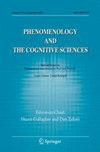An analysis of conceptual ambiguities in the debate on the format of concepts
IF 1.9
1区 哲学
0 PHILOSOPHY
引用次数: 0
Abstract
Abstract There is a debate in philosophy and cognitive science over whether concepts – the building blocks of thought—are couched in a perceptual modality or are amodally represented. The empirical evidence so far collected seems not to have adjudicated this question yet, as reinterpretation of the same set of evidence by both supporters of modalism and amodalism have been provided. I offer a critique of such reinterpretations, arguing that they ultimately derive from theoretical problems in the definition of a modal representation. In particular, I will review three criteria which have been offered to distinguish amodal concepts from modal ones: the isomorphism criterion, the neural location criterion, and the input specificity criterion. I will explain how these criteria often lack theoretical clarity, making it possible in most cases to propose a parsimonious explanation of the same set of data from both an amodalist and a modalist perspective. As a result, it becomes impossible to empirically discriminate between the two interpretations. My conclusion is that the main problem with the discussed criteria is that they frame the question on the format of concept as an either/or debate, by overlooking more interesting empirical questions.对概念格式辩论中概念歧义的分析
在哲学和认知科学中,关于概念——思想的组成部分——是以感知形态表达还是以形态表征一直存在争论。到目前为止收集到的经验证据似乎还没有对这个问题作出裁决,因为模态论和模态论的支持者都提供了对同一组证据的重新解释。我对这种重新解释提出了批评,认为它们最终源于模态表示定义中的理论问题。特别是,我将回顾已经提供的三个标准来区分模态概念与模态概念:同构标准,神经定位标准和输入特异性标准。我将解释为什么这些标准常常缺乏理论上的明确性,使得在大多数情况下,从情态论和情态论的角度对同一组数据提出一个简洁的解释成为可能。因此,从经验上区分这两种解释是不可能的。我的结论是,所讨论的标准的主要问题在于,它们将概念的形式框定为非此即彼的辩论,而忽略了更有趣的经验主义问题。
本文章由计算机程序翻译,如有差异,请以英文原文为准。
求助全文
约1分钟内获得全文
求助全文
来源期刊

Phenomenology and the Cognitive Sciences
PHILOSOPHY-
CiteScore
5.00
自引率
8.70%
发文量
72
期刊介绍:
Phenomenology and the Cognitive Sciences is an interdisciplinary, international journal that serves as a forum to explore the intersections between phenomenology, empirical science, and analytic philosophy of mind. The journal represents an attempt to build bridges between continental phenomenological approaches (in the tradition following Husserl) and disciplines that have not always been open to or aware of phenomenological contributions to understanding cognition and related topics. The journal welcomes contributions by phenomenologists, scientists, and philosophers who study cognition, broadly defined to include issues that are open to both phenomenological and empirical investigation, including perception, emotion, language, and so forth. In addition the journal welcomes discussions of methodological issues that involve the variety of approaches appropriate for addressing these problems. Phenomenology and the Cognitive Sciences also publishes critical review articles that address recent work in areas relevant to the connection between empirical results in experimental science and first-person perspective.Double-blind review procedure The journal follows a double-blind reviewing procedure. Authors are therefore requested to place their name and affiliation on a separate page. Self-identifying citations and references in the article text should either be avoided or left blank when manuscripts are first submitted. Authors are responsible for reinserting self-identifying citations and references when manuscripts are prepared for final submission.
 求助内容:
求助内容: 应助结果提醒方式:
应助结果提醒方式:


